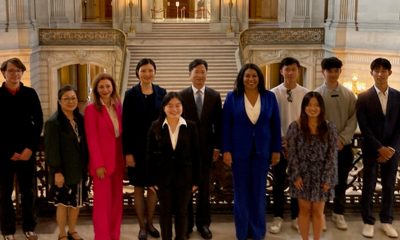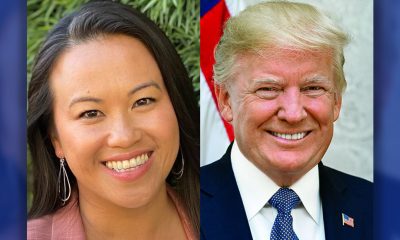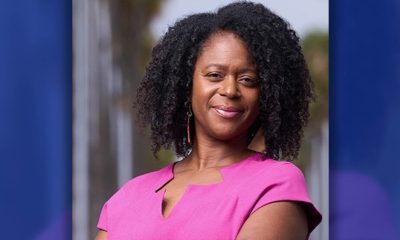Activism
COMMENTARY: Beijing’s Winter Olympics? An African American Diplomat Speaks Out for the Uyghurs in China
Probably not “mass killing,” of an estimated 1 million like Pol Pot in Cambodia in the 1970s. But considering China’s restrictions on Uyghurs having children, and taking children away from families, it all falls within the conventional definition of the term, according to Naomi Kikoler, director of the Simon-Skjodt Center for the Prevention of Genocide at the United States Holocaust Memorial Museum in the latest Smithsonian Magazine.
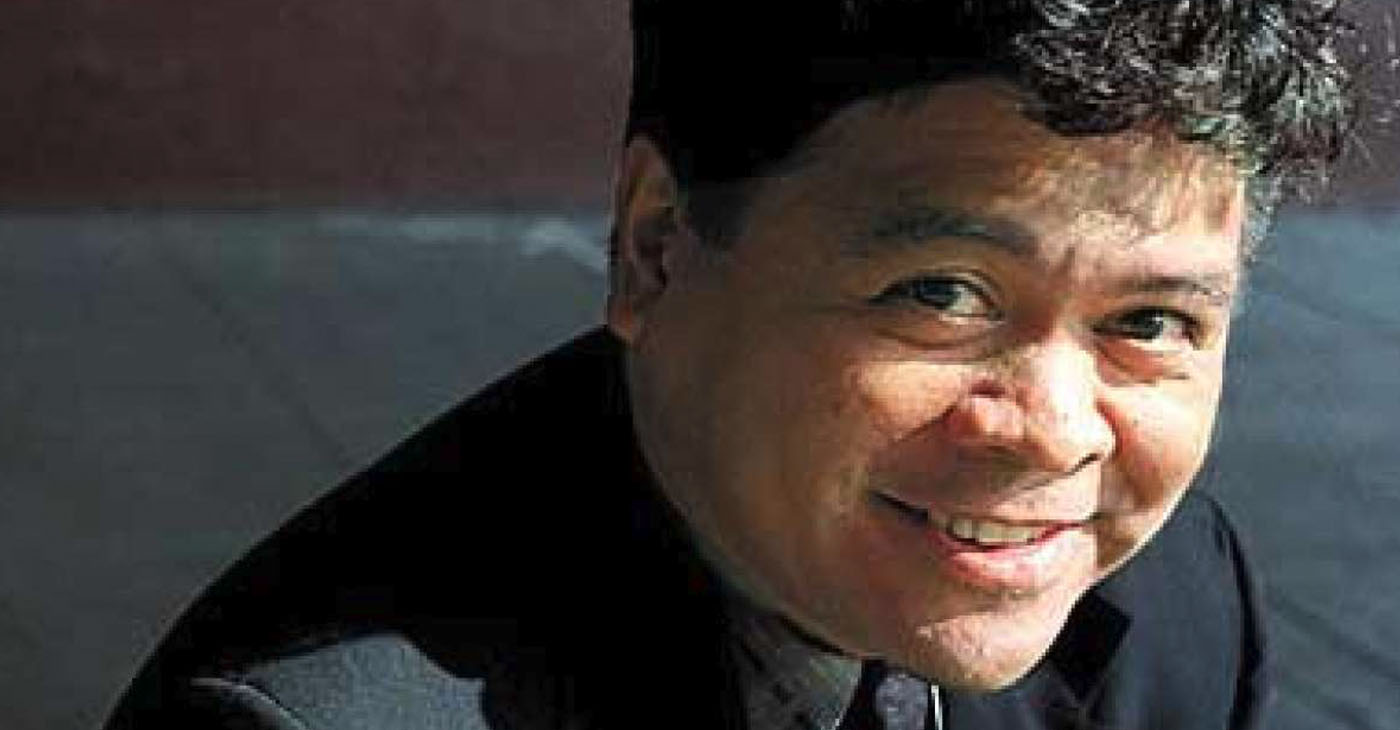
By Emil Guillermo
Elana Meyers Taylor, an African American and four-time Olympic bobsledder, missed out on the honor of being the U.S. flag-bearer at the Winter Olympics opening ceremony in Beijing last week.
After testing positive for COVID-19, she was forced into isolation. But by Monday she was cleared to compete in her events.
COVID-19 hangs over these games in China like a dense cloud. But it’s not the only cloud.
The other involves China’s treatment of the Uyghurs.
Pronounced “Wee-ger,” they are a centuries-old Turkic people of Central Asia, but has been annexed as part of western China for a fraction of that time. Uyghurs are often referred to as Uyghur Muslims, and that should be your clue.
In a country viewed as homogenous as China, there are actually more than 50 ethnic minorities. The ones that stick out are the Uyghur Muslims.
Uyghurs’ movements in their home area, the Chinese province of Xinjiang, are restricted. What they do. What they say. How they pray.
The Chinese have subjected them to a forced assimilation into the Chinese mainstream. It’s really the systematic erasure of Uyghur culture.
Human rights advocates would say it earns China the gold medal in oppression.
It’s the reason U.S. President Joe Biden isn’t attending the Olympics. The U.S. has joined other countries in declaring a diplomatic boycott.
And the leading voice in defense of the Uyghurs’ human rights? An African American, Linda Thomas-Greenfield, U.S. Ambassador to the U.N.
“Uyghurs are being tortured,” Thomas-Greenfield said recently on CNN. “And Uyghurs are the victims of human rights violations by the Chinese, and we have to keep that front and center.”
Mind you, as harsh and direct as those words were, Thomas-Greenfield from Louisiana, is being diplomatic. Makes you wonder just how bad it is for the Uyghurs.
The term ‘genocide’ is often used.
The Journal of Genocide Research in 2020 said many at first doubted the word should be used at all. But as British scholar Jo Smith Finley said, “More have shifted closer to this position, and others beyond our discipline have joined in.”
Genocide.
Probably not “mass killing,” of an estimated 1 million like Pol Pot in Cambodia in the 1970s. But considering China’s restrictions on Uyghurs having children, and taking children away from families, it all falls within the conventional definition of the term, according to Naomi Kikoler, director of the Simon-Skjodt Center for the Prevention of Genocide at the United States Holocaust Memorial Museum in the latest Smithsonian Magazine.
Since 2017, China has placed up to 3 million Uyghurs caught praying or practicing their Muslim religion in re-education camps. It qualifies as the largest mass internment of an ethnic-religious minority since World War II.
China calls the camps vocational training. But survivors of the detentions say they were prisoners, some subjected to torture, rape, and beatings.
And then when people “graduate” from their indoctrination, they are sent to forced labor assignments with Western companies like Adidas, Amazon, Apple, and Google.
Some are calling it a form of slavery.
The lucky ones have fled the country in the Uyghur diaspora. In the U.S., there are about 250,000 Uyghur Americans who are able to keep their language and culture intact. But many haven’t been able to contact family and friends for years.
China is using the 2022 games as a propaganda tool of Olympic proportions. It even had the lone Uyghur athlete, Dinigeer Yilamujiang, a cross-country skier, light the torch. But then wouldn’t let her speak to the media.
So, all is good in China? We should know better.
And all this because the Uyghurs are Muslim and seen by China as terrorist threats to the state.
Nothing sporting about any of that. Enjoy athletes like Elana Meyers Taylor. But heed the words of Linda Thomas-Greenfield.
She can see through Beijing’s Olympic rings. She’s fighting for the Uyghers.
Emil Guillermo is a journalist and commentator. He does a talk show on www.amok.com
Activism
Oakland Post: Week of July 24 – 30, 2024
The printed Weekly Edition of the Oakland Post: Week of July 24 – 30, 2024

To enlarge your view of this issue, use the slider, magnifying glass icon or full page icon in the lower right corner of the browser window. ![]()
Activism
Oakland Post: Week of July 17 -23, 2024
The printed Weekly Edition of the Oakland Post: Week of July 17 -23, 2024

To enlarge your view of this issue, use the slider, magnifying glass icon or full page icon in the lower right corner of the browser window. ![]()
Activism
Community Celebrates Historic Oakland Billboard Agreements
We, the Oakland Billboard Economic Development Coalition, which includes Oakland’s six leading community health clinics, all ethnic chambers of commerce, and top community-based economic development organizations – celebrate the historic billboard agreements approved last year by the Oakland City Council. We have fought for this opportunity against the billboard monopoly, against Clear Channel, for five years. The agreements approved by Council set the bar for community benefits – nearly $70 Million over their lifetime, more than 23 times the total paid by all previous Clear Channel relocation agreements in Oakland combined.
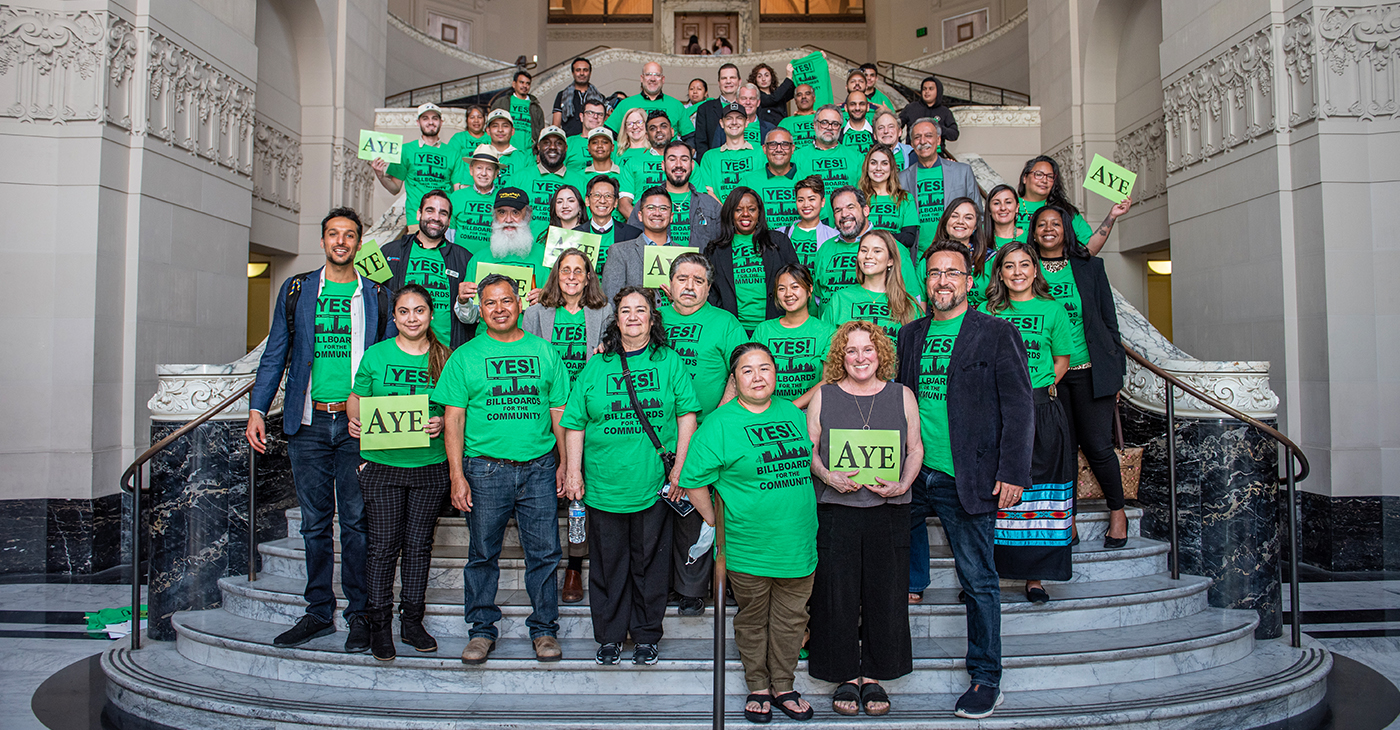
Grand Jury Report Incorrect – Council & Community Benefit
We, the Oakland Billboard Economic Development Coalition, which includes Oakland’s six leading community health clinics, all ethnic chambers of commerce, and top community-based economic development organizations – celebrate the historic billboard agreements approved last year by the Oakland City Council. We have fought for this opportunity against the billboard monopoly, against Clear Channel, for five years. The agreements approved by Council set the bar for community benefits – nearly $70 Million over their lifetime, more than 23 times the total paid by all previous Clear Channel relocation agreements in Oakland combined.
Unfortunately, a recent flawed Grand Jury report got it wrong, so we feel compelled to correct the record:
- Regarding the claim that the decision was made hastily, the report itself belies that claim. The process was five years in the making, with two and a half years from the first City Council hearing to the final vote. Along the way, as the report describes, there were multiple Planning Commission hearings, public stakeholder outreach meetings, a Council Committee meeting, and then a vote by the full Council. Not only was this not hasty, it had far more scrutiny than any of the previous relocation agreements approved by the City with Clear Channel, all of which provide 1/23 of the benefits of the Becker/OFI agreements approved by the Council.
- More importantly, the agreements will actually bring millions to the City and community, nearly $70M to be exact, 23 times the previous Clear Channel relocation agreements combined. They certainly will not cost the city money, especially since nothing would have been on the table at all if our Coalition had not been fighting for it. Right before the decisive City Council Committee hearing, in the final weeks before the full Council vote, there was a hastily submitted last-minute “proposal” by Clear Channel that was debunked as based on non-legal and non-economically viable sites, and relying entirely on the endorsement of a consultant that boasts Clear Channel as their biggest client and whose decisions map to Clear Channel’s monopolistic interests all over the country. Some City staff believed these unrealistic numbers based on false premises, and, since they only interviewed City staff, the Grand Jury report reiterated this misinformation, but it was just part of Clear Channel’s tried and true monopolistic practices of seeking to derail agreements that actually set the new standard for billboard community benefits. Furthermore, our proposals are not mutually exclusive – if Clear Channel’s proposal was real, why had they not brought it forward previously? Why have they not brought it forward since? Because it was not a real proposal – it was nothing but smoke and mirrors, as the Clear Channel’s former Vice President stated publicly at Council.
Speaking on behalf of the community health clinics that are the primary beneficiaries of the billboard funding, La Clinica de la Raza CEO Jane Garcia, states: “In this case, the City Council did the right thing – listening to the community that fought for five years to create this opportunity that is offering the City and community more than twenty times what previous billboard relocation agreements have offered.”
Oakland Billboard Economic Development Coalition
| Native American Health Center | La Clínica de la Raza | West Oakland Health Center |
| Asian Health Services | Oakland LGBTQ Center | Roots Community Health Center |
| The Unity Council | Black Cultural Zone | Visit Oakland |
| Oakland African American Chamber of Commerce | Oakland Chinatown Chamber of Commerce | Oakland Vietnamese Chamber of Commerce |
| Oakland Latino Chamber of Commerce | Building Trades of Alameda County | (partial list) |
-

 Arts and Culture3 weeks ago
Arts and Culture3 weeks agoRooted in Tradition: The Intricate History of Black Hair Braiding
-

 Bay Area4 weeks ago
Bay Area4 weeks ago“I Will Not Be Bullied,” Says Oakland Mayor Sheng Thao
-

 Bay Area2 weeks ago
Bay Area2 weeks agoPG&E Increases Rates While Bay Area Households Are Struggling to Stay Afloat
-

 Business3 weeks ago
Business3 weeks agoGov Newsom: Raising Fast Food Minimum Wage to $20 Pays Off as Jobs Multiply in Industry
-

 Activism4 weeks ago
Activism4 weeks agoOpponents of Mayor Sheng Thao Are Calling on Her to Resign Following FBI Raid
-

 Community1 week ago
Community1 week agoHundreds Come to Jehovah’s Witnesses’ Assembly Hall for Three-Day Program of ‘Good News’ in Fremont
-

 Bay Area2 weeks ago
Bay Area2 weeks agoJuneteenth Mass Shooting Suspect Charge with Multiple Counts of Felony Assault by Alameda County DA Pamela Price
-

 Activism4 weeks ago
Activism4 weeks agoOakland Coliseum Sale to AASEG: A Model for Community Development and Inclusion







